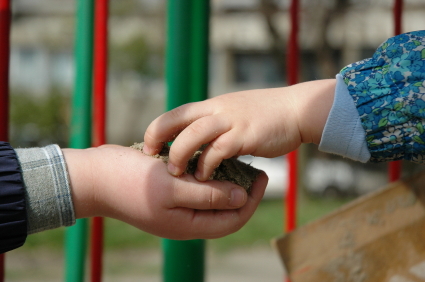
In the familiar story of Jesus feeding the five thousand, we naturally tend to gravitate towards the part where five loaves and a few fish are miraculously multiplied to feed an entire crowd. It is understandable that we focus on the end of the story as it the point at which the crowd begins to recognize Who Jesus is. We are rightly in awe of the power that is displayed, as well as the care that the Savior exemplified for those that sought His presence.
What we don’t tend to spend much time thinking about are the events that led up to the miraculous multiplication. Andrew identifies a boy in the audience who had a small lunch. Not knowing what Jesus could do with it, Andrew takes it to Him. Reading the narrative in John one almost gets the impression that Andrew himself wasn’t certain what the point of the offering was. He knew it was insufficient to meet the need. However, he also knew that it was all they had. He brought it to the one Person who could do something with it. He didn’t know what the outcome would be, but he brought what he had anyway.
I imagine that there was some internal debate in Andrew’s head as he contemplated whether the small lunch was even worth mentioning. I suppose that the other disciples looked on with amazement at Andrew’s utter lack of appreciation for the magnitude of the situation. And I know that often times when we are faced with difficulties, a similar circumstance emerges. We know that what we have doesn’t amount to the need that exists. We wonder whether the people around us will look at us with ridicule as we offer what little we can bring for the sake of the Kingdom. We are well aware of the insufficiency of our gifts, but nevertheless we bring it to the One who not only can multiple loves and fish, but Who uses the “chief among sinners” for the purposes of His Kingdom.
So instead of trying to accumulate more – more talents, more resources, more substance – before we offer ourselves to the King, we would do well to follow the example of Andrew and bring what we have. It may be meager, but thankfully God specializes in transforming the insignificant into something substantial.
